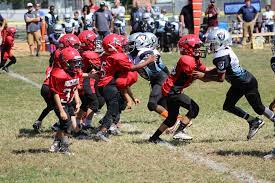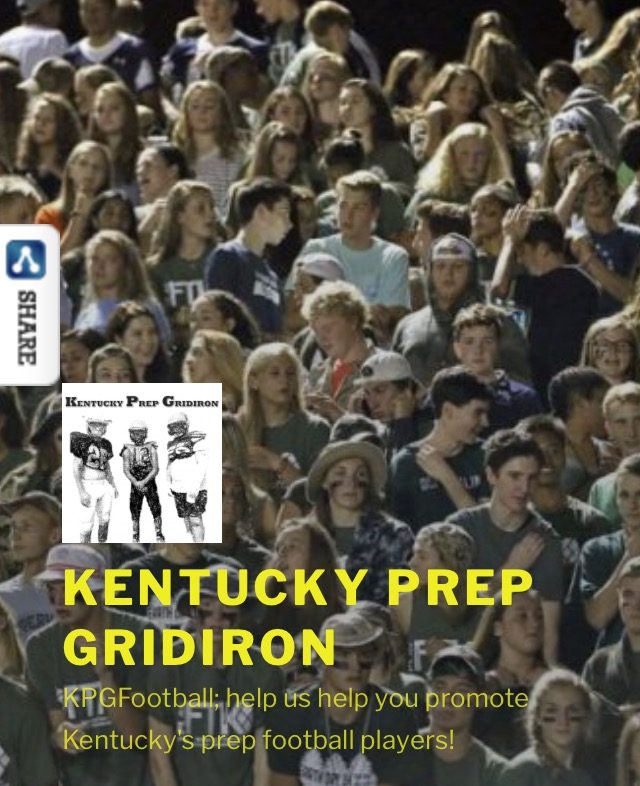
This article, which only had 49-views the day it first posted, has over 10,000 views today
It is the most pernicious aspect of youth league sports. While it has completely permeated and overtaken little league baseball, it exists in every sport, football included. It is called Daddy Ball but it is perpetrated by way more than daddies.
Honestly, in the sport of football, it may be most perpetuated by mothers, though from the commentary emanating from the grandstand and not from the substitution patterns exhibited on the playing field. All parents want what is best for his or her child, but when it begins to interfere with the team’s goals, it simply has to be checked.
I am talking to the reader today more so as an individual and not so much as the senior writer at KPGFootball. I prefer, when publishing on this site, to limit my commentary to that which is the bread and butter of KPGFootball and, therefore, mostly use third-person, as opposed to first-person, pronouns. I have elected, and KPGFootball has permitted, my taking off my sports writer’s hat and substituting it for just being “me.”

My son, William Long, made a little league all-star team in Clarksville, Tennessee when he was 10. I will never forget arriving to watch the first practice.
It seemed the fathers outnumbered the players in the team’s dug-out. I made the flippant comment, With all the management this team appears to enjoy, there’s hardly room for players. The respective daddy’s managerial committee about whom I made the comment weren’t amused.
Well, as fate would have it, the biggest stick on the team, and a player who should have been starting and batting in the middle of the lineup, was riding the pines and playing intermittently. His father was complaining to me that it was killing his kid’s confidence and his son didn’t understand why he wasn’t more regularly on the field.
I knew full well why he wasn’t playing. His father wasn’t one of the team’s nine (9) managers.
One of the managers’ wives heard us talking and went to her husband and related to him her take of the conversation on which she had eves-dropped, uninvited. He confronted me about the commentary. He accused me of sewing the seeds of malcontent among the parents in the grandstand.
If we are seeking precision, I wasn’t the one chiefly complaining. I was, largely, commiserating and listening to a parent’s entirely legitimate complaint.
However, I wasn’t, in the face of confrontation, going to deflect to the parent who had come to me in confidence just because the manager’s wife had eves-dropped in on a conversation to which she was neither invited nor a party. The conversation was conducted in a hushed manner, as it really wasn’t intended for publication outside of its two participants.
This lady had to considerably strain to over-hear our private conversation. She had exerted quite an effort, I mused.
He wasn’t there for the kids. He was there for his kid.
Fletcher Long, Senior Sports Writer, KPGFootball
Well, the father, who was just one of the myriad coaches on the bench of the largest little league baseball managerial staff ever assembled, informed me that all of the coaches were volunteers, unpaid, and just there for the kids. I felt relieved we weren’t actually paying the inordinately large managerial staff, but I digress.
Not being one to be preached at without retort, I told the Daddy/Manager that he most certainly was being paid. He had elected to coach the team, and accept as payment, the assurance his son would play as opposed to his son’s having to compete for a spot in the lineup.
He wasn’t there for the kids. He was there for his kid.
So when does a father coaching his son cross over from legitimate to Daddy-Ball? Where is the line, so to speak.
There are many examples of Dad’s coaching their sons in football across Kentucky. George Hatcher, for example, who has coached in high school football some 40 years at varying levels of responsibility from head coach on down, is on the staff where his son Peyton is a star linebacker at Somerset High School.

Is that Daddy-Ball; and, if it isn’t, then why not? Well, it’s not, and here is why.
Peyton Hatcher starts at LB for any team in Kentucky, whether George is on the staff or not. He’s not routinely in contention for the respective All-State Football teams across the commonwealth for nothing.
That isn’t Daddy-Ball because Peyton isn’t on the field because his dad is on the football coaching staff (not that it matters, but Coach Hatcher doesn’t coach linebackers anyway). To be Daddy-ball, it has to be apparent your son just doesn’t deserve to play, and the fact he is playing is owing to the fact you have made yourself the decision-maker over the distribution of playing time.
When Coach Maravich played Pistol Pete, for instance, at LSU; or Wade Houston started Allen Houston at Tennessee, it wasn’t because Pete’s and Allan’s dads got coaching jobs for the teams where their sons were playing. Actually, in the case of Wade Houston, Tennessee gave him the vacant head coaching position just to get Allen to come play basketball there.
Pistol Pete Maravich and Allan Houston played, and would have played, if both of the teams had been headed up by two coaches who absolutely hated both their families and them. They were just too good not to play.
Here’s how you, as a coach, know if you are Daddy-balling. If your son’s backup is (even arguably) as good as he, and you wouldn’t even consider playing him, you are a Daddy-baller.
If your son’s backup is…as good as he, and you wouldn’t even consider playing him, you are a Daddy-baller.
Fletcher Long
If your son’s backup is better than your son, and the fact of your son’s playing detrimentally impacts the integrity of the sport and the success of the team, you should be immediately relieved of your coaching responsibilities. In the latter case, your bias in your son’s favor has eroded your objectivity.
There is nothing wrong with coaching your son. Some father’s coach their sons to insure that his teammates and he get a quality foundation built in a respective sport they don’t trust some other dad to properly construct.
I told my own son, when I coached him, that if another kid on the team was as good as he, I would be forced to play that kid over him. When my son was 10, I did exactly that.

I benched my son from the defensive starting lineup in favor of a kid that appeared, at least to me, to be as good as William, though no better. As good, to me, was good enough reason, in my mind, to start the other kid over my own, to avoid even the appearance of impropriety.
What I am seeing as a parent, with leagues today in a variety of different sports, are fathers who are, unabashedly and without a moment’s remorse or reservation, playing their sons when their sons are absolutely terrible. In some cases, I have seen coach’s sons who are the very worst player on the entire team, not just starting, but playing every minute of every game to the crowd’s understandable derision.
It is causing dissension on sidelines, and in grandstands, and has erupted into very ugly confrontations. This has, regrettably, also resulted in violence as seen in headlines across the nation.
As someone who also loves his children, be honest with them and yourself (perhaps principally). If you want to coach your son, do so with some integrity.
Make him earn his time on the field and don’t be afraid to start a kid over him where that kid is deserving. After all, once you’ve decided you’re a coach, you are every kid’s coach on that sideline, and not just the one or ones to whom you happen to be related.
Editorializing today more so than reporting on KPGFootball‘s behalf, this is Fletcher Long reminding all of the ballers out there that #WeGotUCovered and to PLAY THROUGH THE WHISTLE.
If you enjoyed this article and wish to gain full-access to the site, then subscribe monthly to Kentucky Prep Gridiron by following the prompts!
© The information contained on this site is the copyrighted intellectual property of KPGFootball. Any unauthorized dissemination of this material without the author’s express written consent is strictly prohibited!



Sorry for the long reply, but you hit a hot button… This was a great illustration and all of it is true, but none of it is new. It has just steadily gotten worse. Go back 40 years and the local baseball association or whatever was controlled by an “Ole’ Boys Club” of teachers and people who had flexible work schedules in an era of assembly lines and manual labor. Back then however, many parents were physically exhausted by their work and they were just happy that little “Timmy” was busy and outside. Of course, the goal of those gaming the system has always been to make their kid and their friends the stars, who then have social benefits as well as an inside track to higher-level teams. I directly witnessed this in the 80’s as the “Ole’ Boys Club” in my area suddenly showed up at High School practices “helping” the coach after controlling who got access to playing time and resources for years in the youth programs.
The response to small-time favoritism like this was the rise of travel sports. So now instead of a few central people who might be bad actors, we have everyone’s dad, mom and the entire extended family actively involved in carving out little “Jayden’s” entire life. We have media covering the Ball kids and LeBron’s kids are getting recruited. I have directly hear parents of local kids talking about how Jr. was getting recruited for various sports even before puberty. People are insane. Teams have become the social life for the parents and the kid’s exploits drive the content of the parents’ social media. Nothing wrong with that in moderation, but everyone sees the “helicopter parenting” that has defined every generation since late GenX. So many people think the rise of an entitlement-driven world view in young adults was because we gave everyone participation trophies, but it has happened because helicopter parents refuse to allow their kids to struggle or suffer any sort of temporary failure. We are “making the memories” that every little all-star is “entitled” to…
Unfortunately, this issue is so large that it can only be mitigated, not stopped. I have been sort of in the middle of this in six sports across my kids for about 10 years and I can see a few things in the rear-view mirror.
• First, don’t freak out and don’t keep up with the Jones’s. Parents should take a long-term perspective on what they want for their kids out of sports and sort of build a list. For example, everything I want for my children has to do with building confidence, learning teamwork, bonding, competing, having fun and teaching work ethic. That may not be what everyone else wants, but think about what really matters to your kid, not what matters to your ego.
• Second, I recommend looking for a club and a coach who believe in development as a process instead of winning, because short-term winning at the expense of the kids is a direct sign of an unhealthy environment. Going to organizations with non-parent coaches can be good, but it is very expensive, and it can be equally unhealthy if the winning record of the team serves as the resume for your “professional” coach.
• Third, consider coaching. If you can coach yourself, I highly recommend it, but don’t coddle your kid; nothing hurts a kid more than benefitting from favoritism. Sports are about developing the child’s mind and preparing the child for life. Imbuing a child with a sense of entitlement is one of the worst things a parent could do.
• Finally, I would also recommend that parents accept that sports are a great place for kids to be allowed to struggle. Resist the temptation to jump in even if it is another adult’s direct actions impacting your kid. Jump in for safety or abusive treatment, but not for playing time. How you act as a parent is what the kid will remember and making Jr work for something that isn’t easy is a great thing, which demonstrates maturity, patience and integrity.
I would like to share a personal story, but the one I have in mind shares a little too much and makes some people who have become my friends look bad. I will just say this. Every time as a young kid my oldest son struggled or got the short end of the stick. I overreacted and I drove him hard to improve. In two sports I helped him become the unquestionably best player in the school because it got him past some of this. The result was massive short-term success, which I thought was a big win at the time. In hindsight I have learned that it wasn’t sustainable because I did it for him and now he relies on me as a crutch. Just this year, he lost his starting spot on the 8th grade basketball team. Instead of jumping in and driving him like I have done so many times in the past, I told him that he has our total support, but it is on him. Success or failure, he owns it. He is personally accountable. My ego hates me and we are not talking.
aDad, Thanks so much for sharing this comment and we can see we hit a hot button with you for which we are grateful. We are in the hitting hot buttons business. Consider joining the site and continuing to enrich us with your comments. KPGFootball